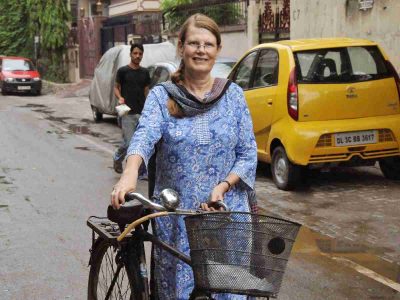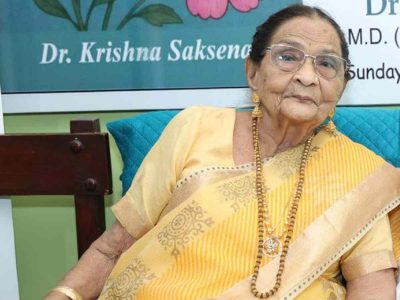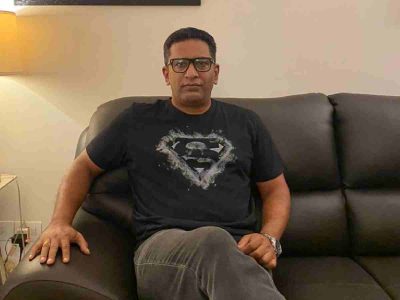In an exclusive interview with Anjali Gopalan, founder of Naz Foundation, about the promises political parties have made to the LGBTQI+ community
With election fervour at its peak, it becomes important to talk about the issues that the LGBTQI+ community continues to face in India. Even though many political parties have mentioned it in their manifesto, only time will tell the results they yield. Patriot speaks to human rights activist and founder of The Naz Foundation (India) Trust, Anjali Gopalan, to know her views on the promises made.
When we look at the LGBTQI+ rights in India, how far have we reached in the fight and how much is yet to be attained?
It’s only decriminalisation that has happened. The community hasn’t got the rights that the rest of the citizens of this country take for granted. We haven’t even started yet. Everything — like same sex partnership, surrogacy, adoption — has to be in place, which is the right of every citizen of this country. Any right that you have as an Indian citizen should be the same and equal for everyone. Why should anyone be left out of it?
Congress’ manifesto talks about LGBTQIA+ matters, promises to withdraw the pending Transgender Bill and directs gender sensitivity training at all government offices. How do you see these promises?
I think it’s great that they’ve included the LGBTQI+ matters in their manifesto. And gender sensitivity programmes are not only needed, but will also prove to be helpful everywhere. I think it’s a good start, if they actually do what they’re saying. However, we don’t know, I mean a lot of things that are written in manifestos are not really implemented. You look at BJP’s manifesto, it only talks about the transgender community. They’re not even talking about the rest of the community. I don’t know how serious they are about any of this.
How do you think they could’ve improved this section in their manifestos?
They should definitely talk about working towards a more inclusive environment, where everyone has equal rights. I would recommend something like civil rights, so that everybody can come under its purview.
With Harsh Iyer joining Congress, how important it is to have more queer representation in the political space, and how do you think it will help the fight?
I think it’s a great step for him to join politics. We need as many voices as possible in the political space. It changes things. Of course, when there is representation, one will be heard. Right now, it’s a shame to openly be a queer in our political establishment.
In Nepal, it’s completely different — there you have an openly queer person elected. In Madhya Pradesh, you have a Mayor elected, who is a transgender, but other than this, I don’t see any space being created for the community by any political party.
Do you think the power held by heterosexuals is different from that held by the LGBTQI+ community in the political space?
I do not think if they’re representing a party, their power would be any less than others. But one of the primary things is for them to become a member of the party. Parties are not going out of their way to be inclusive at all.
Do you think the political parties also invite people from the community to enhance the diversity quotient within the party?
I think if we’re looking in a democracy these spaces should be open to all kinds of people. So why would you exclude someone based on their sexuality? The more inclusive you are, the more representative you are, it’s more reflective of a democracy that works.
BJP’s manifesto talks only about bringing changes to the lives of the transgender through socio-economic and policy initiatives. What do you think about this?
It’s like the rest of the community doesn’t exist and only transgenders do. I’m glad they’re talking about transgenders, but they need to include others too, right? Why are they leaving others out?
Did any party reach out to your organisation to ask for suggestions on their promises towards the LGBTQI community?
No.
The community is now pushing for same sex partnership. How do you think that will pan out?
No party has spoken about it yet, so I don’t know what their stand is on it. I feel the courts will have to step in ultimately. I don’t think the parties or the politicians are interested to bear any of this.
By only including the transgender people in the manifesto, do you think the party will also reach out to the rest of the community?
I don’t know because they seem to think that transgenders are separate from the rest of the community. Unless they take a stand for the rest of the community, I don’t think it seems to be a very hopeful situation right now.
Why are they focusing on transgenders alone? Do you feel it has anything to do with the cultural aspect?
They see transgenders as part of the Kinnar community. They see it as a cultural aspect, which is why they are more comfortable with them.
Please tell our readers about the work that your organisation is currently doing for the LGBTQI community.
So, we continue to spread advocacy within the community. We continue to provide clinical services. This is what we have been doing since a long time, and we continue to do so.





